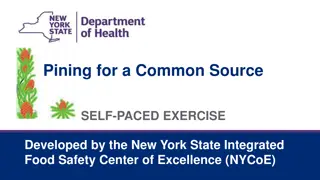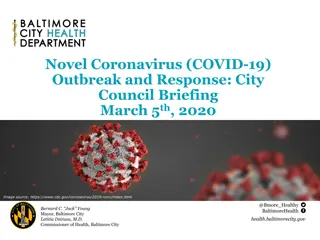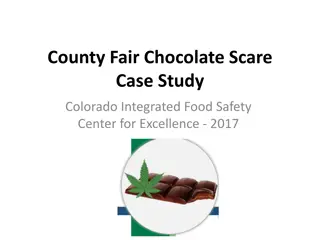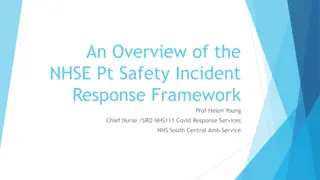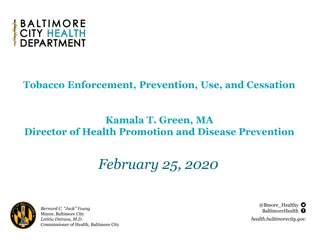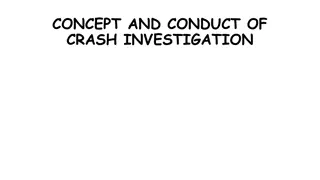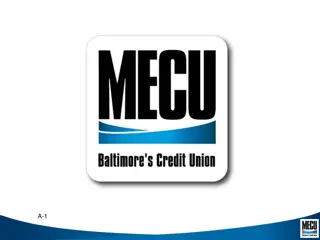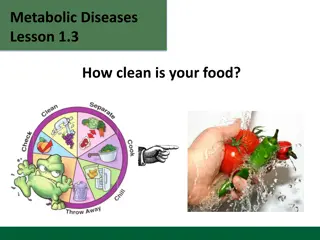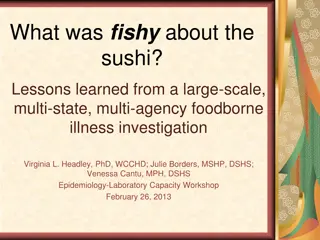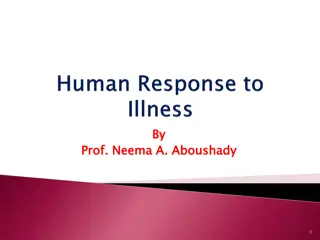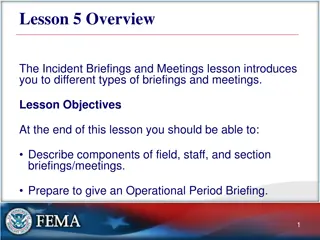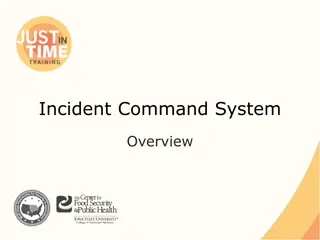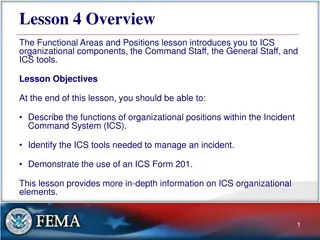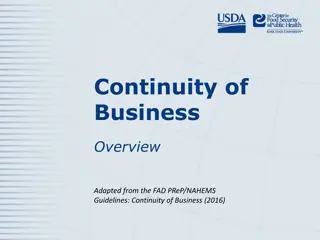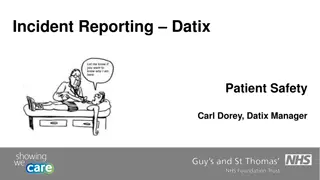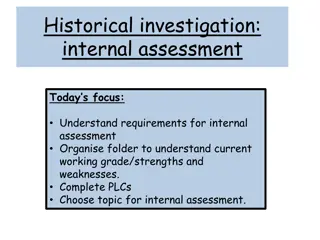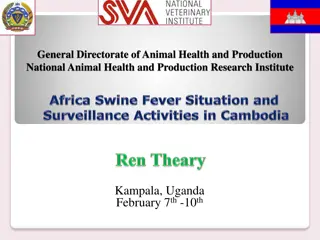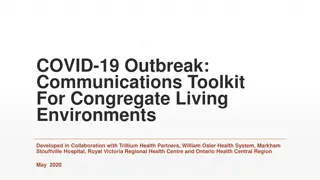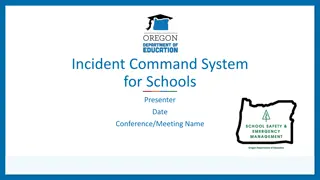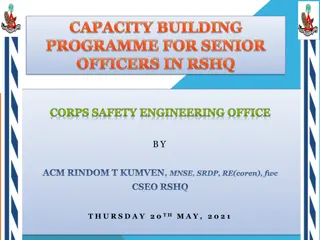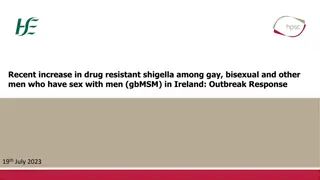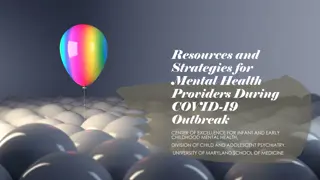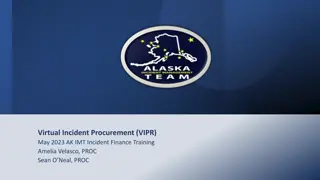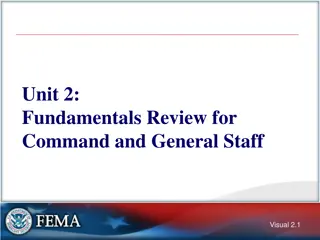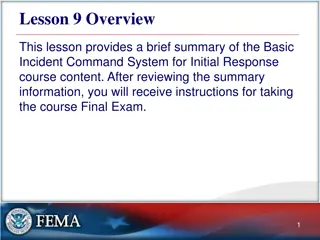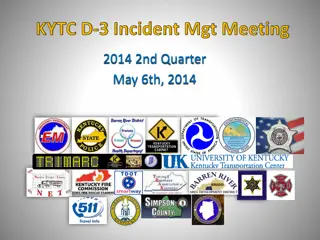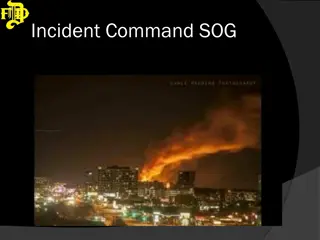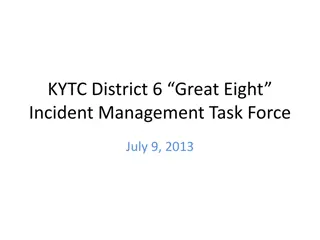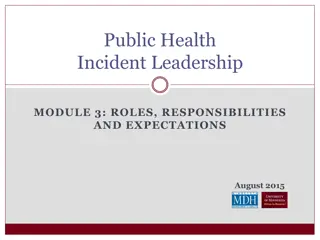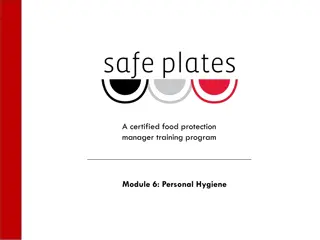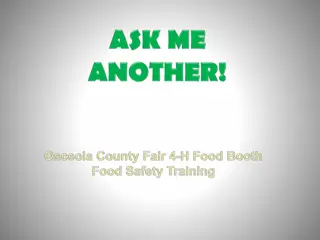Food Safety Incident Investigation: Baltimore City Illness Outbreak
Baltimore City experienced an illness outbreak linked to a lunch event, where 216 individuals fell ill after consuming contaminated food. The investigation revealed that improper handling and cooking of precooked frozen chicken led to the contamination with Clostridium perfringens. The incident underscores the importance of proper food safety practices to prevent such outbreaks.
Download Presentation

Please find below an Image/Link to download the presentation.
The content on the website is provided AS IS for your information and personal use only. It may not be sold, licensed, or shared on other websites without obtaining consent from the author. Download presentation by click this link. If you encounter any issues during the download, it is possible that the publisher has removed the file from their server.
E N D
Presentation Transcript
A certified food protection manager training program Module 5: Cooling
http://www.nbcnews.com/health/health-news/possible-food-poisoning-sickens-100-safety-summit-n91631 ) Firefly owner John Simmons poses at his restaurant at 3824 Paradise Road in Las Vegas on Monday Nov. 18, 2013. (Bill Hughes/Las Vegas Review-Journal)
What Happened? On April 11, 2014, the Baltimore City received reports of illness from attendees Became ill between April 8 and April 10. The attendees suspected that lunch served on April 9 was the source of the illnesses. Follow up interviews found 216 became ill, onset time of 16 hours. Symptoms: Nausea Abdominal cramps or pain Diarrhea
Possible Cause and Why? Potential Causes Bacteria Norovirus Possible Reasons Why Food purchased from unsafe sources Failure to cook food to correct temperature Improper holding temperatures Contaminated equipment Poor personal hygiene
What They Found Stool specimens from 22 ill individuals were tested 14 days later, toxins found in 4 people Frozen chicken breasts, garlic, and demi glace were cultured for Bacillus cereus and Clostridium perfringens C. perfringens was the likely cause identified by public health.
What Went Wrong? As reported, but not documented, by manager. Precooked frozen chicken breasts were placed on sheet pans and thawed in a walk in cooler on April 8. Cooked the morning of April 9 and transferred to 2 inch pans after cooking. The Marsala sauce was prepared the morning of April 9 and used only for the April 9 lunch. Poured directly over the pans of cooked chicken breasts 1h 20 min before service. Transported to convention center. Held hot until service.
Learning Objectives Explain the difference between spore and vegetative cell Describe the sources, symptoms, and control of Clostridium perfringens, Clostridium botulinum, and Bacillus cereus List the correct cooling requirement for TCS foods Describe methods to achieve rapid cooling
Learning Objectives List the procedures that can be used for Time as a Public Health Control for TCS Food Define temperature danger zone (TDZ) Explain problems created by a heat stable toxin List practices that create a reduced oxygen environment
Key Terms Spore Vegetative cell Temperature Danger Zone Cooling rate Core (internal) Temperature Oxygen requirement Heat stable toxin
Spore Formers Some bacteria may be in vegetative or spore form Vegetative (live) cells can be killed by cooking to proper temperature Higher temperatures kill more bacteria faster Spores can survive and create big problems
Spores Similar to a seed Resistant to heat 165 F for 15 seconds will destroy vegetative cells, spores will survive Destruction of spores pressure and high temperatures required (240 F) Spores can change to vegetative cells and grow rapidly during cooling and produce toxin Important to have rapid cooling to prevent growth and toxin production
Clostridium perfringens Found in soil and animal intestines Symptoms severe abdominal pain, diarrhea Foods meats, poultry, products made with meat products (chili, stews, gravies) Symptoms onset time 12-18 hours Control proper holding temperatures, proper cooling
Bacillus cereus Spore-forming bacteria found everywhere Causes 2 types of gastrointestinal illness 1. Diarrhea Caused by toxin-mediated infection (bacteria infects the body and makes toxin) Onset 6-15 hours 2. Nausea, abdominal cramps, and diarrhea Foodborne intoxication (toxin present in food) Highly stable toxin, resistant to heat Onset is pretty quick
Bacillus cereus Vomiting symptoms cooked rice dishes Diarrhea and nausea symptoms cooked vegetables, meat products Control proper cook, hold and cooling Monitor temperature during service and cooling Proper equipment for hot holding food Tip sensitive digital thermometers are best
Clostridium botulinum Present in soil and water Toxin produced can be fatal pH 4.6 or lower, toxin not produced Requires reduced or lack of oxygen Symptoms weakness, double vision, difficulty swallowing, speaking Control, use only commercially processed canned goods, proper temperature control Discard any damaged containers of canned food
Temperature Temperature Danger Zone Check temperature Cooling
Cooling Rates Minimize Time in TDZ Keep TCS foods at: 41 F or lower 135 F or higher
Cooling Cool TCS food from 135 F to 41 F or lower in 6 hours Step 1: 135 F to 70 F within 2 hours (fast growth of pathogens) Step 2: 70 F to 41 F within 4 hours If food is cooled to from 135 F 70 F in less than 2 hours, you still have 6 total hours to reach 41 F
Cooling If food has not reached 70oF in 2 hours, it must be thrown out or reheated to 165oF and used for immediate service, or cooled correctly Properly cooled food can only be kept for 7 days Freezing stops the clock, restarts when thawed Mixing older items with new items uses the older date
Factors Influencing Cooling Depth heat must move Greater depth = longer time Larger containers (slower) Small shallow containers (faster) Ideally 2-3 inches deep
Factors Influencing Cooling Liquid vs. solids Liquids (ex. broth) - faster Semi-solid (ex. chili) - slower Solid (ex. whole roast) - slowest
Factors Influencing Cooling Air vs Water Cooling method Air slow cooling good insulator Water faster cooling good conductor Cooling in an ice water bath is faster than cooling with air in cooler or freezer
Other Factors Loosely cover containers during cooling Stirring increases cooling rate Use ice paddle; make sure it s clean and sanitized to prevent contamination Tumble chillers - tumble bags of food in chilled water or air Blast chiller
Best Procedures: Summary Place food in small shallow container Place in ice water bath Stir (ice paddle) Monitor time and temperature with tip sensitive digital thermometer
Other Options Addition of ice or cold water after cooking Leave water out of original recipe Avoid cross contamination (ice or water)
Time as a Public Health Control TCS food can remain without temperature control for up to 4 hours: Must have written procedure beforehand Marked with start time Start temp must be above 135 F or below 41 F Discard after 4 hours Can not reheat or re-cool If food is monitored and doesn t exceed 70 F, can be held for 6 hours
Reduced Oxygen Packaging Sealed package without any air and no oxygen passing through package Sous Vide Cook/Chill large batches for later use Must control C. botulinum and L. mono risk Keep at low temperature (pH or aw are also a factor) Have documented procedures and training May apply for a variance, need HACCP
Whats Your Experience? Have you changed cooling practices at your restaurant to minimize food safety risks?
Case Study How It Happened What They Found Food Safety Conference attendees became ill Everyone ate chicken Marsala Frozen chicken breasts, garlic, and demi glace had C. perfringens
Case Study What Went Wrong Prevention Proper cooling Proper reheating Maintain all food at proper temperatures below 41oF or above 135oF Improper cooling Spores germinated to vegetative cells and produced toxin
Quiz According to the FDA Food Code, the temperature danger zone is: a) 45 F - 140 F b) 41 F - 135 F c) 45 F - 141 F d) None of the above
Quiz According to the FDA Food Code, the temperature danger zone is: a) 45 F - 140 F b) 41 F - 135 c) 45 F - 141 F d) None of the above F
Quiz Which of the following is not an acceptable method of cooling food? a) Dividing the hot food into smaller or thinner portions and place in refrigerator or freezer b) Using an ice bath- transfer the food to a clean cold container and place the container in a large on that holds ice or ice and water c) Placing hot food in shallow pans and leave at room temperature for initial cooling d) Stirring or rotating food while it is cooling
Quiz Which of the following is not an acceptable method of cooling food? a) Dividing the hot food into smaller or thinner portions and place in refrigerator or freezer b) Using an ice bath- transfer the food to a clean cold container and place the container in a large on that holds ice or ice and water c) Placing hot food in shallow pans and leave at room temperature for initial cooling d) Stirring or rotating food while it is cooling
Quiz According to the FDA Food Code, cooked TCS food should be cooled as follows: a) From 130oF to 60oF within two hours and then from 60oF to 41oF or colder within four hours b) From 135oF to 70oF within two hours; from 70oF to 41oF or colder within four additional hours c) From 135oF to 45oF within four hours d) From 135oF to 40oF within eight hours
Quiz According to the FDA Food Code, cooked TCS food should be cooled as follows: a) From 130oF to 60oF within two hours and then from 60oF to 41oF or colder within four hours b) From 135oF to 70oF within two hours; from 70oF to 41oF or colder within four additional hours c) From 135oF to 45oF within four hours d) From 135oF to 40oF within eight hours
Review Bacillus and Clostridium are spore formers Spores not killed at normal cooking temperatures Do not use non commercially canned products Temperature abuse Proper and rapid cooling is critical Monitor temperatures and time


